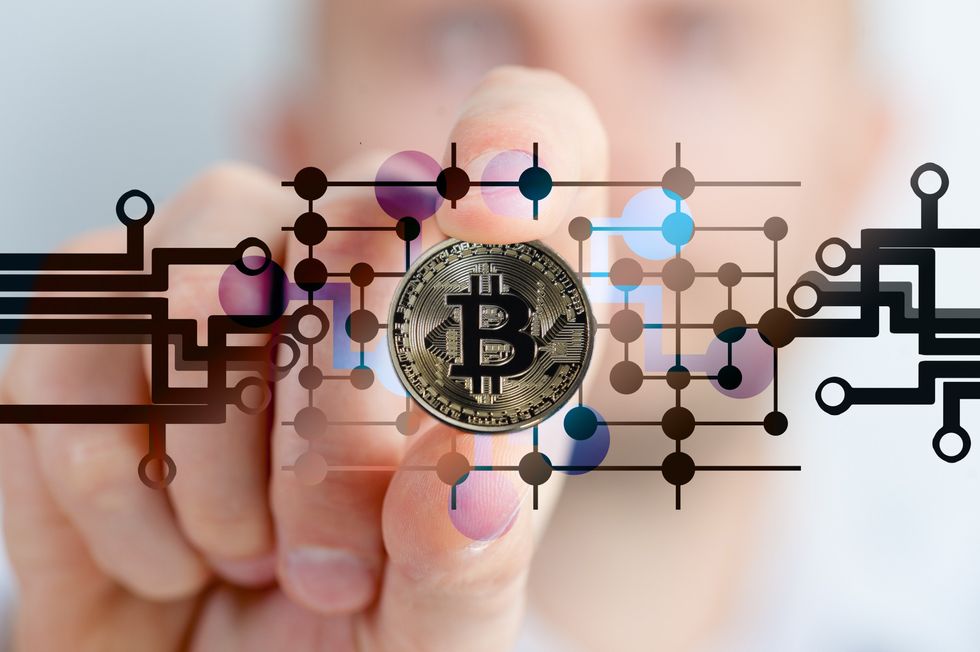There's yet another way to capture consumer loyalty and dollars. By accepting retail cryptocurrency payments, you can make it easier for tech-savvy customers to buy your services and goods. Now that Bitcoin is back in the digital black, it looks like there's another way to make money with cryptocurrency – for retailers, at least.
Across nearly every vertical, technology is making a huge impact – especially in the financial field. Now, speculators can expand how, where and when they trade. Resultantly, fintech is evolving at a rapid pace – and blockchain is leading the way.
Americans With Bitcoins
According to a survey published by Finder – a consumer financial information clearinghouse – the average American cryptocurrency owner holds $5,447 in digital coins. Approximately three-quarters of survey respondents, however, own about $360 in cryptocurrency.
Today, over 50% of United States cryptocurrency holders own Bitcoin (BTC). The Finder survey also found that men own around twice as much cryptocurrency as women.
Among American cryptocurrency owners, many consider digital coins as an investment. For now, lack of accessibility and unfamiliarity with cryptocurrency prevents many consumers from using it as a standard form of retail payment.
Consumer sentiment about cryptocurrency varies around the world. For example, 11% of Americans own Bitcoin, while more than 30% of European survey respondents believe that digital coin is the payment system of the future.
Bitcoin Volatility Is Real
Cryptocurrency ownership does not come without risks. Furthermore, cryptocurrency movement can affect the real-world economy. Resultantly, digital coin movements can affect financial stability and disrupt the systems and entire market infrastructures. Cryptocurrency can also affect monetary policymaking.
Besides, cryptocurrency lacks underlying value. It's primarily a secure ledger. This characteristic makes it difficult to evaluate and speculate about the value of digital coins.
Global Leaders' Take on Cryptocurrency
If you're wondering what the government thinks about Bitcoin, you're on solid ground with the digital currency in the U.S. However, not all governments feel the same.
While lawmakers around the world are intensely interested in cryptocurrency, they're not huge fans of any existing digital coin. Bitcoin, for instance, enables coin holders to conduct transactions around the world anonymously. Anonymity has made cryptocurrency a favorite among malicious actors – not a redeeming trait in the eyes of lawmakers. Still, some countries have introduced legislation regarding cryptocurrency, taking it mainstream, although it's not a substitute for legal tender in any nation.
In Some Nations, Cryptocurrency Mania Prevails
Just a year ago, the cryptocurrency market plunged dramatically. Speculators panicked, and many pulled their diminished funds off the market.
Now, digital coin is much less volatile. As a result, it's now a more viable option for payment processing, and thanks to the relatively recent and infamous market dive, nearly everyone knows about cryptocurrency.
In other countries, cryptocurrency point of sale systems (POS) are commonplace, notably in Japan and South Korea. Consumers have invested heavily in digital financial instruments in those nations. Around the world, however, an increasing number of merchant account vendors are making cryptocurrency POS services available to business owners. In developed nations, such as Iran and the United States, legislators have introduced laws to speed up the adoption of cryptocurrency merchant processing.
Now, cryptocurrency contributes to the world's current most valuable commodity – proprietary data. As it does this, there'll be a growing demand for skilled professionals who know how to wrangle a growing global data pool.
It's essential that entrepreneurs who want to accept digital coins as payment understand everything they can about cryptocurrency and the consumers who use it, and that's just what many business leaders are trying to do. Data scientists are up to the task of fulfilling this critical business need.
Setting Up Shop in the Digital Domain
Contemporary point-of-sale systems are becoming increasingly sophisticated. Some of them accept cryptocurrency payments, such as Bitcoin. The equipment can only manage these transactions because of its speed, security and transparency.
As an example, Stripe's API enables merchants to accept cryptocurrency payments through their websites or at brick-and-mortar locations. Square is another popular merchant solution. The company's consumer-facing equipment list Bitcoin as an acceptable form of payment right next to Visa and MasterCard.
PayPal has also entered the cryptocurrency merchant fray with a patented device that accepts Bitcoin, Ethereum and Litecoin. Incidentally, PayPal's Venmo product also accepts cryptocurrency.
Digital currency offers much more anonymity compared to fiat currency. By leveraging an anonymous bitcoin address, digital coin holders can make purchases quickly, easily and privately.
Furthermore, cryptocurrency eliminates many of the fees related to making traditional financial transactions. Because of this, your ideal buyers can add money to your coffers without ever entering personally identifiable information.

























